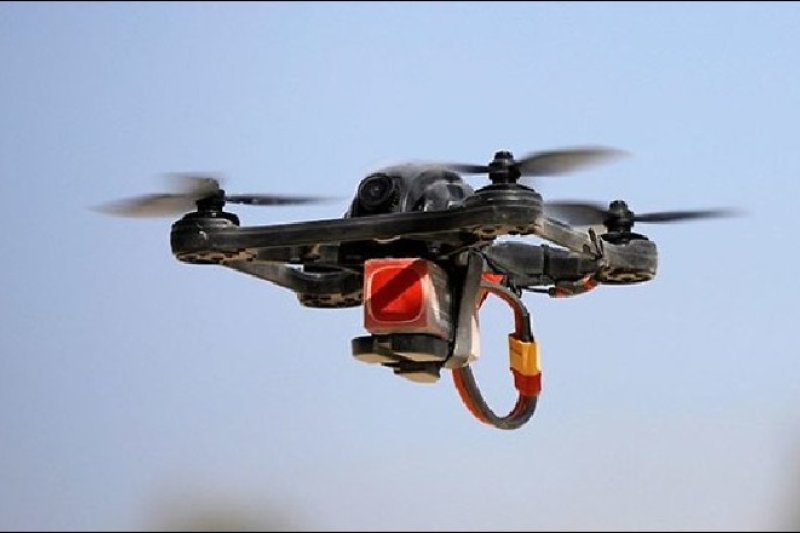Say 'Welcome!' to Drones in Our Daily Life
Although the first permit for the commercial flight of a civilian drone was granted as far back as in 2006, the civil drone industry gained tremendous development momentum and perspective all over the world, only with the extraordinary restrictions on movement and physical displacement, caused by Covid 19 pandemic.
Unfortunately, this outbrake has not yet happened in our country. We need a full legal basis, since the history of civil drones in recent years knows cases where in some developed countries, their commercial use has failed, due to the lack of appropriate legal regulations.
In Albania, on June 6, 2022, with Order No. 114 of the Ministry of Infrastructure and Energy and Civil Aviation Directorate (https://www.aac.gov.al/wp-content/uploads/2024/07/urdher-2022-07-18-143.pdf ), the "Regulation for Unmanned Aircraft Systems and Operators of Unmanned Aircraft Systems" was approved.
This is how the saga of the civil drones began legally in Albania. Until now, unfortunately there are no concrete examples of licensing activity for civil drones here, though this new industry is convincingly developing in the European Union and in the countries in our region.
However, the regulation of June 6, 2022 reflects in principle Regulation No. 2019/945 of the EU, drafted by the European Union Aviation Safety Agency (EASA). On July 18, 2022, with Order No. 143 of the Ministry of Infrastructure and Energy and the Directorate of Civil Aviation, the "Regulation on Rules and Procedures for the Operation of Unmanned Aircraft" was approved. This regulation basically reflects the Regulation No. 2019/947 of the EU, drafted by EASA.
Although a first legal basis was finally formed, these regulations still do not enable the licensing of concrete civil drone operations in our country. Meanwhile, the European Union has come a long way and from 2023, the airspace of the EU is being managed with new technologies and methods, harmonizing air traffic, not only for piloted aircraft, but also for unmanned aircraft of different categoriest.
This harmonization of rules, if duly followed in Albania by responsible State institutions, can create wide opportunities for the use of the technological capacities of drones, in the service of the industry, the free movement of goods, the preservation of the environment and many other positive effects in the lives of our citizens.
The drone is fast, cheap and capable of performing even dangerous tasks. Civilian uses of drones are many, but those with the most economic weight are in agriculture, energy and real estate. In agriculture, drones have been widely used in the field of civilian applications such as smart agricultural practices through mapping and studying crop data, using footage and images of an agricultural region to make 3D representations of soil structures, etc. The drone has many other uses, with great added value for our economy.
It has been seen as an appropriate solution to reach remote places, to avoid traffic, but also to have low-cost maintenance. Following the example of Amazon and many other global delivery networks, we in Albania too can build a network of delivery of goods to our customers via drone.
It would be very useful for businesses and citizens, to be able to project the extension of this structure in Albania as well. The interested partners in the private sector are trying to spread information and raise awareness, but it seems they are left alone to face the challenges of a non yet well regulated unmanned aircraft industry in Albania.
We need an increased awareness not only among citizens, but also in our responsible State structures, about the unlimitted opportunities offered by the development of the industry of civil drones. If we look at how many start-up projects we have supported so far, through government initiatives, for the uses of civil drones, we will find one or two. The Albadron company, in cooperation with the Harry Fultz College in Tirana, has set up a professional class for organizing courses in the field of unmanned aircraft and drones.
We can and should look at the possibilities of introducing the teaching of unmanned civil aviation in our professional schools and having civil drone cabinets in high schools. Training courses for the use of civil drones can also be subsidized by the State, as is a widespread practice in other countries of our region and in the world.
In the meantime, in addition to the two 2022 regulations, the time has come to help the rapid development of this very promising new industry through a comprehensive Unmanned Civil Aviation Act, able to reflect the latest developments in the uses of civil drones in EU and worldwide. / ADN













